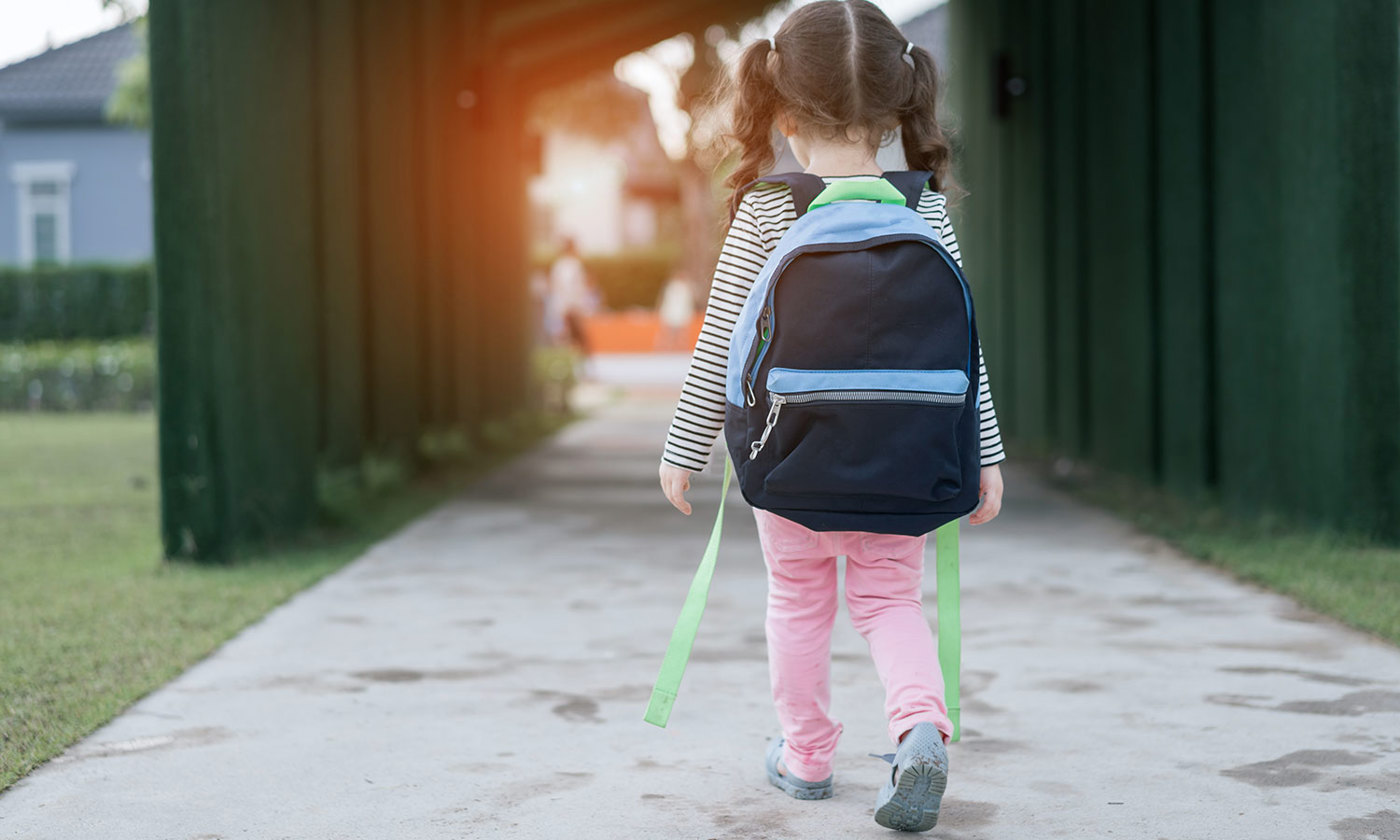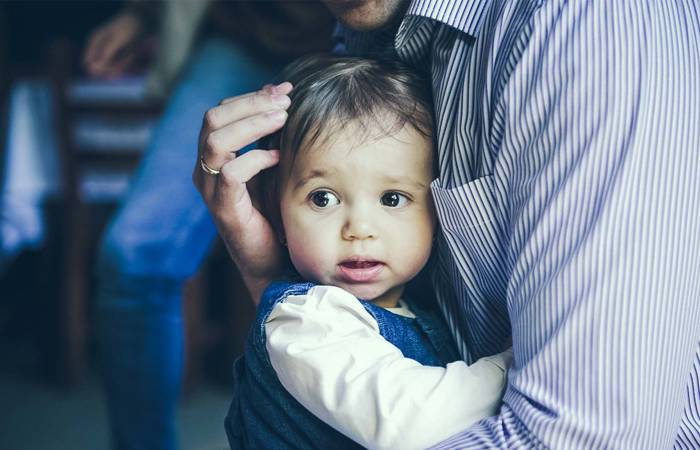Like what you see?
Sign up to receive more free parenting advice.
Thank you for subscribing to our newsletter!
Child Development

Credit: iStock.com/champlifezy@gmail.com
As children prepare to go to school or early learning centres the focus is often on what lies ahead: meeting new educators and making new friends. So how do parents and carers support children through change?
Dr Rebecca English, a lecturer in the Faculty of Education at QUT, says helping our children focus on the positives ahead and not on what they are losing or leaving behind is part of preparing them for the future.
“We're training children to live an independent life. My own children have good friends from down the road who are about to move to Tasmania. Today's their last day here; I am preparing myself for the change too,” she says.
Regardless of the child’s age, Dr English says the most important thing parents can do is to listen to and acknowledge their child’s feelings.
“You need to say, ‘I understand that you're really sad because Sally is staying in the toddler room and you're moving up to the next room',” she says.
Keeping explanations short and sweet is often the most effective technique for under-fives.
“One of the problems is that parents think they need to have very long conversations with their young children. But a sentence or two is really enough. Once you acknowledge their feelings and the cause of them, that's all you need to do. Then, let the child talk to you, cry or express anything they want to about it,” she says.
Dr English says that for most children the feelings of sadness will pass as they make new friends.
“We can help them understand that this is a temporary feeling. We can also talk to our child about how it’s wonderful they have had such a close friendship: there are some real positives in that,” she says.
Just be matter of fact. If we don’t make it a big deal then for many children it won’t be a big deal. Our children are guided by us and how we feel about things. If you are stressed about something, they're going to be stressed too.Dr Rebecca English
Stay up to date with the latest news and articles from First Five Years
Thank you for subscribing to our newsletter!
Helping with separation anxiety
In a new environment, the moment of separating can feel difficult at first, but Dr English reiterates, it’s good to take charge of the process and ensure it doesn’t drag out.
“When you leave a child at school or early learning, you can say, ‘It’s time for me to leave. Have a great day. I’m going to work and you’re going to be here',” she says.
“Reminding them of who will be picking them up is also useful,” says Dr English. “It just helps them become aware of what is going on.”
Parents should avoid getting into a ‘back and forth’ about the separation.
“That implies that you might change your mind. Don’t have long conversations with your child. Just say: ‘I'm leaving, Mummy has to go to work. You're going to have a lovely day. Dad is going to get you at the end of the day',” she says.
Parents are often confused by the fact that the same child who was desperate for them to stay is cranky or naughty on their return.
“Parents can expect some uptick in issues like naughtiness when their child is back home. They are just trying to connect with you. While sometimes that seems irrational to an adult brain, to a child it’s perfectly normal. They're just looking for that attachment,” Dr English says.
“Young children lack the language skills to clearly express what they are feeling deep inside. Their only way to express this is crying and being frustrated or acting out,” she says.
Remembering how younger children play
For young children who are moving rooms at childcare, it can be useful to remember that while they may appear to have a strong attachment to a particular child, young children don’t actually play collaboratively in their early years.
“When children are very little they play side by side; it’s parallel play rather than the collaborative play they engage in when they are a little older at around the age of three,” Dr English says.
Find support in the new environment
Dr English says most children will move through this type of separation well given the right support. For children who struggle with transitions, working out strategies with their new educator can make a real difference.
“They will have tons of experience in this area, so ask them what they think works and what they would like to see you doing. Then, they can actually support you to support your child. For example, they might not want you to pack a toy or a blanket, but may have other suggestions,” she says.
A face-to-face meeting with your child’s new teacher is excellent if that’s possible.
“Explain to them that this is their new teacher, and that they are going to make sure that they are well looked after and cared for. It will really help; they'll start to develop a bit of a relationship and a rapport, which will be very important,” she says.
In a childcare environment, Dr English says leaving your child with their new educator for just a couple of minutes (if it’s an option), can also help.
“Just let them know you’ll only be gone a couple of minutes, and that you’re not too far away. It will help them get used to the feeling of being there when you aren’t,” she says.
Preparing your children the day before the change happens is also useful.
“You can say, ‘Tomorrow is Monday; it's childcare day. Is there a specific outfit you'd like to wear tomorrow? Shall we get your clothes out?’.
“Just be matter of fact. If we don’t make it a big deal then for many children it won’t be a big deal. Our children are guided by us and how we feel about things. If you are stressed about something, they're going to be stressed too,” Dr English says.
Top tips
- Acknowledge your child’s feelings about missing their friend or former educator.
- Don’t give long explanations about what is coming up – one or two sentences is enough for young children.
- Don’t be surprised if their behaviour at home changes while they adapt to a new school or childcare environment.






